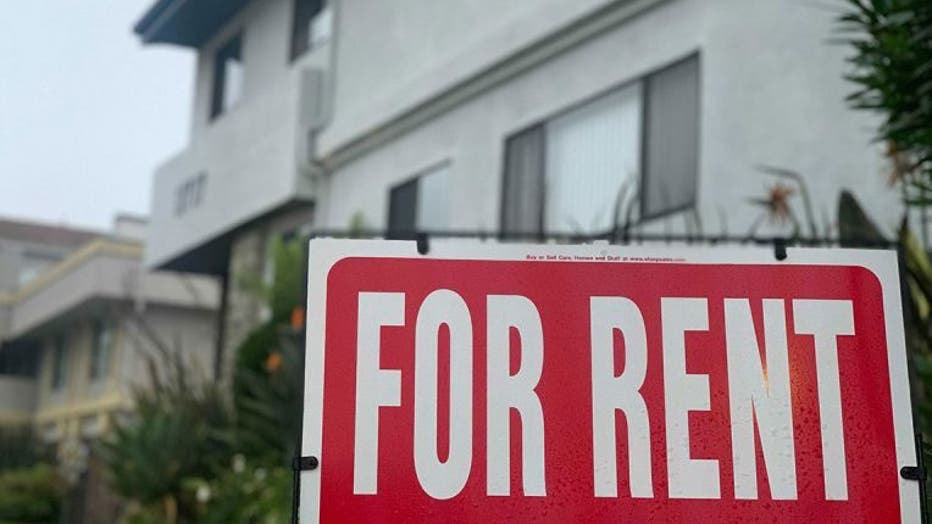Renters find bidding wars in crowded housing market

Renters feeling the pain in crowded housing market
The home buying market is starting to slightly cool, and now renters are the ones finding themselves in bidding wars. FOX 5 real estate expert John Adams explains what's going on in the rental market right now.
ATLANTA - For the past 24 months, we’ve talked about supply and demand in the housing market, with buyers facing stiff competition from other prospective buyers, and being forced to offer a price well above even the asking price.
Well now, the home buying market is starting to slightly cool, but renters are beginning to feel the pain.
FOX 5 real estate expert John Adams says there is no doubt that the frenzy, especially among millennials, to buy a house before it’s "too late" has, in fact cooled off a little bit. It is still not unusual to receive multiple offers for a home that hits the market today, it’s just that the frenzy part of the equation has cooled.
Instead of getting 10 offers to buy the first weekend, a seller might only receive one or two. We are seeing almost nothing in the way of price concessions, and that indicates demand is still strong. But the volume of offers has declined in a way that more accurately reflects a good sellers market instead of a frenzied sellers market.
So what was the reason for the change? Adams says it's a matter of supply and demand.
Since November of last year, home mortgage interest rates have increased dramatically from 2.98% to an average rate today of 5.75%. That is a staggering increase, and it was caused primarily by the Federal Reserve desperately trying to slow down the economy and cool off inflation.
Whether or not the artificial intervention of the Fed will slow inflation remains to be seen, but every time the interest rate rises by even a fraction of a percent, more and more prospective home buyers are no longer able to qualify for a home loan.
Economists claim that, since November 2021, at least 4 million buyers have been pushed out of the buying market. That’s a lot of buyers.
When former prospective buyers are no longer qualify to buy, they still have to live somewhere. The only thing they can do is rent. The demand has skyrocketed, just at a time when supply is coming down.

(Mary Stringini)
And the supply of available rental homes is decreasing for three reasons:
1. Lots of renters legally quit paying rent for a year and a half. About half of rental units are mom-and-pop operations who rely on rent for their retirement income, and a lot of them decided to get out of the business if they had to pay for taxes and insurance, but they could not legally collect any rent. Many of these long term rental units have sold to owner-occupants.
2. Wall Street decided to get into the home rental business in a big, big way. Institutional investors with seemingly unlimited cash decided to buy everything that hit the market in their desired category, fueling the price increases and pushing out traditional owner-occupants. These same investors are especially aggressive with rate increases.
3. Property management firms, taking a cue from aggressive selling agents, are telling applicants to make their "highest and best offer" by a deadline to encourage competition between applicants for the few available rentals, and it is working. Rental occupancy is at an all-time high of 97%, and builders are building exclusively high-end rentals, knowing they will rent almost instantly.
These three factors, and the stunning flood of millennials into the housing market, are choking the housing market. Government seems powerless to help, and costs to investors are rising rapidly, just like gas and groceries.
When it comes to looking for a solution, Adams honestly does not see one. So long as inflation grips our economy, rents will have to rise. And the incentives for investors to repair old homes and offer them as rentals has declined over the years.
During the pandemic, the CDC decided to let landlords pay the price for tenants who decided to quit paying rent. Owners have responded by getting out of the business or raising rents dramatically to help cover their losses.
This is the way our government works.
The bottom line is that the average recession over the past 50 years has been about 11.5 months. If we are really lucky, inflation will subside by the end of the year, and hopefully, rental rates and home prices will move toward stabilization.

